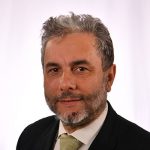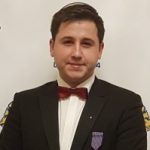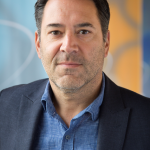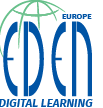
- This event has passed.
MicroHE Expert Panel Workshop
June 3, 2020 @ 00:00
WATCH THE RECORDING VIEW THE PRESENTATIONS
The event will take place in EDEN’s dedicated Adobe Connect room – Join us there!
Description
New trends emerged in higher education in the last few decades. The delivery methods rapidly changed: part of the courses are now provided in digital or blended form. This got a strong „push” in the time of Covid-19. The rapidly changing labor market also calls for shorter, industry-specific courses. The degree courses are more and more modularized: smaller, well defined „chunks” are delivered as SLP-s (electronic short learning programmes, MOOCS, etc). This trends should be reflected also in the form of recognition and credentialisation: there is a need to award short learning courses and other learning achievements with some form of credetials.
The European Standards and Guidelines for Quality Assurance (ESG 2015) also call on Higher Education Institutions to enable flexible learning pathways, use different modes of delivery and encourage a sense of autonomy in learners.
Micro-credentials can do just that. Taking it simle, a micro-credential is a subunit of a credential that can be stacked into a larger credential. As Anthony Camilleri formulated in the Masterclass on Micro-credentials in Bled (Slovenia) „For higher education institutions, micro-credentials require an educational moonshot of our times.”
The webinar will discusse the state-of-art of micro-credentials, based on the results produced by the MicroHE project.
The project assessed the adequacy of European recognition instruments for micro-credentials, in particular ECTS, the diploma supplement and qualification frameworks, proposed a ’credit-supplement’ with detailed information about micro-credentials in a way compatible with ECTS, and created a meta-data standard for verifyable micro-credentials.
Moderator
 Ferenc Tátrai, Phd
Ferenc Tátrai, Phd
Senior advisor of EDEN
Graduated as chemical engineer at the Budapest University of Technology and Economics (TUB) and got his MA degree in applied mathematics at Eötvös Loránd University. He made his postgraduate studies at the Ecole Politechnique Federal de Lausanne and got his PhD from the TUB. After his PhD he spent two years at the University of Brisbane (Australia) doing research and writing a textbook in computer simulation of chemical plants. In 1996 he was appointed to director of the Phare Office of the Ministry of Education. In 1998 he became the CEO of the first information technology science park „Infopark” in Budapest. From 2000 he became the educational director of the Centre for Informatics of TUB. A year later he was asked to organise the work of the European Social Fund (ESF) National Implementing Agency. He was the director and the Authorizing Officer of the Phare programmes and later responsible for the ESF programmes mostly in the area of education and training. He has expertise in drafting, implementing, managing and monitoring EU funded projects and programmes. After eight years he went back to the TUB where he has been teaching for almost 40 years and retired as associate professor from the Department of Chemical Technology of the same university. Having published over 50 scientific papers, he is co-author of 3 patents and several textbooks in chemical and environmental technology. Seven years ago he joined EDEN as Senior Advisor and takes part in the research work of EDEN in the area of distance and e-learning, modularisation of higher education courses and credentialing of open and non-formal learning experiences.
Presenter

Dénes Zarka
Director at BME-MTI
He has been working as head of development and adult education expert at the Centre for Learning Innovation and Adult Learning of the Budapest University of Technology and Economics since 1997. He worked as Project Manager at the Budapest Training Technology Centre in 1992-1997. His current work includes managing ODL projects, planning and developing of distance education and e-learning courses and service systems related to the developed, adapted learning materials (network of tutors, specification of courses, staff, tutor training, sale). He often gives methodological lectures and work shops on content development. Furthermore he is experienced with ODL and ICT research, corporate relations and market research.
Panelists
 Deborah Arnold
Deborah Arnold
EDEN Senior Fellow
Director of the AIDE-numérique department at the Centre for Information Systems and Digital Practice, University of Burgundy, France
 Paul Bacsich
Paul Bacsich
EDEN Fellow
Managing Director of Matic Media Ltd, visiting professor, University of Derby, UK
 Lisa Marie Blaschke
Lisa Marie Blaschke
Chair of the Board, EDEN Fellows Council
E-learning and Communications Consultant, Program Director, Carl von Ossietzky University Oldenburg, Germany
 Mark Brown
Mark BrownEDEN Fellow, EDEN EC member
Professor and Director of the National Institute for Digital Learning, DCU
 Claudio Dondi
Claudio Dondi
EDEN Senior Fellow
Independent Senior Expert in Education and Training

Helga Dorner
EDEN Fellow, EDEN EC Member
Lecturer at the Centre for Teaching and Learning, Central European University, Hungary

Vlad Mihaescu
EDEN NAP SC Member
Professor, University Politehnica Timisoara, Romania

George Ubachs
Director, EADTU
